Y.S. Lee's Blog, page 2
November 1, 2016
Looking ahead
Hello, friends. This summer, our 50?-year-old kitchen finally, completely, unequivocally broke beyond any reasonable repair. We decided to renovate it and hey let’s divide a bedroom in two so the kids can have their own rooms and while we’re at it we should really rectify the plumbing in the bathroom and you know, we may as well turn the stairs around and bring them up to code while we’re at it. Yes, it’s a very old house. The four of us are presently in our sixth week of camping out in the living room with a fridge, a microwave, and a hotplate.
NOT COINCIDENTALLY, I’ve been reading a lot of food writing recently. I have the Fall 2016 issue of Lucky Peach, which looks at the politics of fine dining. I’ve been obsessively bookmarking recipes on the internet. This past weekend, our lovely neighbours, M and A, invited us over for rack of lamb, chèvre mashed potatoes, asparagus, broccoli, salad with candied almonds, and homemade ciabatta. I wanted to weep with joy and gratitude. I ate a lot.
And then M turned to me and asked, “What’s the first thing you’re going to cook in your new kitchen?” At the time, I came up blank. We’re doing okay for main meals: I cooked and froze a lot of soups and stews earlier this autumn. We have a rice cooker. And a toaster. What Nick and I are really missing is vegetables.
Right now, even washing salad greens is tricky (pedestal sink in the bathroom! Water everywhere!) and everything gets peeled, chopped and cooked at the dining table. In practice, this means we eat crudités. Like, every night. So when this reno’s finished, I’m going to make the biggest salad ever documented, with a dressing that requires 47 ingredients. I’m going to roast a diversity of vegetables in our new oven. And I’m going to braise some others, just for fun. So. Many. Vegetables. And once that’s out of my system, I’ll cook a balanced meal for M and A.
In the meantime, what are your favourite ways to eat vegetables? Best recipes? Inspire me!
October 25, 2016
And the winner is…
Warmest congratulations to Martine Leavitt on winning the 2016 Governor General’s Award for Young People’s Literature (Text category) for her astounding novel, Calvin!
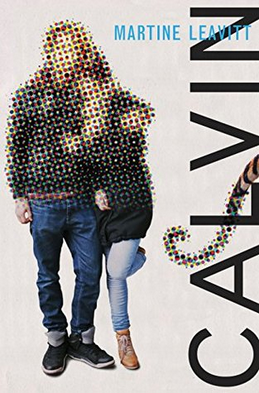
Here’s our jury citation:
In Martine Leavitt’s Calvin, a boy newly diagnosed with schizophrenia makes a pilgrimage across a frozen Lake Erie. Told in spare, beautiful prose, this transcendent exploration of reality and truth is funny, frightening and affirming. Calvin is an astonishing achievement.
I love and admire this novel so much. I hope you’ll read it, too.
October 18, 2016
Momentum
Hello, friends. I’ve already mentioned this on Twitter and Facebook but my big news this week is that I received a Writers’ Works-in-Progress Grant from the Ontario Arts Council! I would be deeply grateful for the OAC’s support at any time, but their letter and cheque came at the end of a fortnight when I’d been side-eyeing my ungainly WIP and generally feeling that I’d lost all momentum. As Steph Burgis pointed out to me, the combination of artistic validation plus financial support is about as good as it gets. Thank you, jurors and administrators and taxpayers. I’m so thankful.
My other news is that Nick just surprised me with a copy of Curtis Sittenfeld’s Eligible, “a modern retelling of Pride and Prejudice” and I am here to report that it is NOTE-PERFECT.
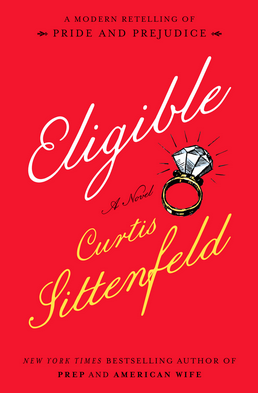
Don’t let the cover put you off; to me, it feels like the designer was channelling Mrs. Bennet. However, the novel itself is a triumph. Sittenfeld transposes the Bennet family to Cincinnati in the year 2013. Jane is a yoga instructor. Chip Bingley first turns up wearing seersucker shorts. Jasper Wick is every bit as shallow and slimy as you could hope, and yet you understand (kind of) why Liz Bennet finds him attractive. And Austen’s plot maps perfectly onto reality television, queerphobia, casual racism, Silicon Valley and how Lydia Bennet would text.
I love that Sittenfeld is unafraid of tampering with Austen – especially the parts that so many find sacrosanct. Here’s her revision of the novel’s first line: “Well before his arrival in Cincinnati, everyone knew that Chip Bingley was looking for a wife.” As for Austen’s famous elisions, Sittenfeld fills them in with enthusiasm. I know I’m not the only reader outraged and frustrated that we never hear Elizabeth Bennet’s exact words as she accepts Darcy’s second proposal. (I also hate the passage from Emma in which the narrator reports Emma accepting Knightley’s proposal: “What did she say? Just what she ought, of course. A lady always does”. It’s too coy, too smug, entirely too intent on sorting Those Who Know from Those Who Don’t.) Towards the end of Eligible, Sittenfeld really goes for it, and it works beautifully for me.
So! I’m planning to spend the rest of this week working on Monsoon Season and ordering up more Curtis Sittenfeld from the library. What are you up to?
October 11, 2016
The introvert’s punchline
Hello, friends. Have you seen the “introverts unite” meme?
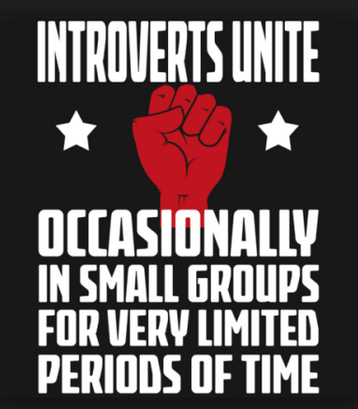
Or this one:

Or my favourite:
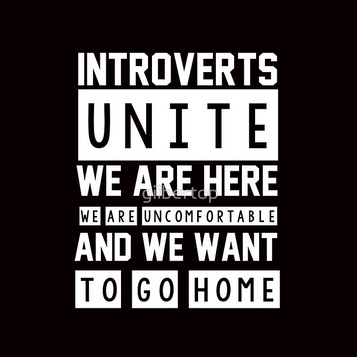
I ask because this week, I became the punchline of my own private joke about introversion.
A couple of days ago, I reviewed my list of Goals for 2016. Now, I am consistently, wildly, hilariously unrealistic optimistic when setting objectives. For example, these are real items from my list:
full draft of Monsoon Season by March (Ha. I am only now about 50% through a first draft.)
full primary series once a week (Um, no. That takes about 90 minutes and a fitness level I cannot yet imagine possessing.)
So it’s not very often that I get to colour in a little bubble on that particular page of my bullet journal. Even so, I like to check in once in a while, if only to gawp at the vast chasm between my expectations and my actual achievements. So imagine my delight when I found the following item:
connect with six new writers
and realized that I could name five! I was nearly there! So I wrote down the five names and, in doing so, had a most unwelcome revelation. Of that list of five writers (who I admire, am thrilled to have met, hope to build friendships with), three approached me. I met the other two on a panel at a festival. That’s right: I didn’t initiate the connection with a single one of those five. Technically, although I am close to checking off that item, I didn’t do a thing to earn it. And I can’t help thinking that this is, at least in part, because I’m an extreme introvert.
So you know what this means, right? I have a little over two months to screw my courage to the sticking place (hoping that I don’t otherwise channel Lady Macbeth) and make a genuine connection with another writer.
Quietly.
From my own home.
October 4, 2016
Long road to a short list
Hello, friends. Since February, I’ve been bursting with a secret: I am a juror for the 2016 Governor General’s Award for Young People’s Literature (Text category)!!!!!!!! (I will stop there, although there aren’t enough exclamation points in Canada for how I feel about this.) You guys, it’s been so difficult keeping this quiet. I’m used to talking about what I’m reading and why I’m reading it, any interesting side projects I have going, and how I spend a significant part of my leisure time. For nine months, I’ve had to be vague and evasive with all my friends:
Oh, these are review copies.
Yeah, I’ve been reading a lot of middle-grade novels for a change.
Yes, I do get a lot of parcels.
Finally! It’s such a relief to be able to say why.
Now that’s out of my system, I realize that the award is Not About Me and I hope each of the shortlisted authors (here in alphabetical order) will accept my heartfelt congratulations and admiration:
Mikaela Everett, for The Unquiet (Greenwillow Books)
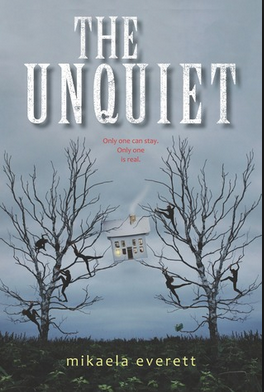
E. K. Johnston, for A Thousand Nights (Disney/Hyperion)
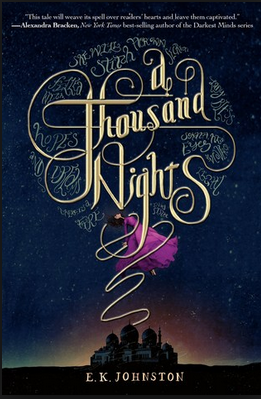
Trilby Kent, for Once, in a Town Called Moth (Tundra Books)
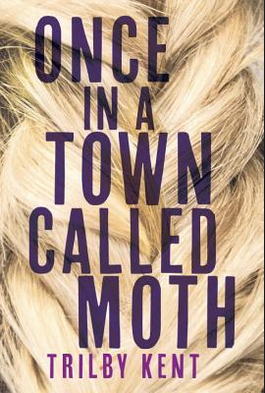
Martine Leavitt, for Calvin (Groundwood Books)

Tim Wynne-Jones, for The Emperor of Any Place (Candlewick Press)
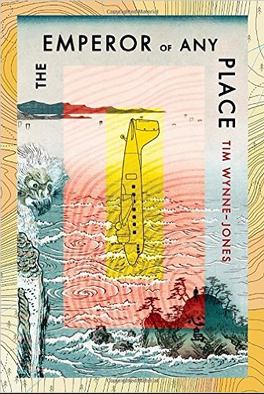
You know those clichés about “so many deserving books”, “excruciating choices”, “an embarrassment of riches”? They are all (in this case, certainly) entirely true and accurate. Arriving at this shortlist with fellow jurors, Don Aker and Polly Horvath, involved thousands of hours of reading and re-reading, a full day of deliberation, polemic, and debate, and an adjective-count in the millions. (Polly hates adjectives. But we each used roughly a squillion of them as we discussed the books.)
Warmest congratulations again to all the shortlisted authors, and to everybody on the submissions list. I’ve emerged from this process with so many new-to-me authors to follow, so many books to share with others. Cliché alert: It’s been a privilege. (But it really has.)
September 27, 2016
Two Worlds
Hello, friends! Tomorrow, I have the joy of moderating a talk with two profoundly talented writers, Lynne Kutsukake and Michael Prior. We’ll be at Kingston’s WritersFest and the title of our session is “Two Worlds: Who Am I When Cultures Clash?” I read Kutsukake’s and Prior’s debut books – an historical novel set in 1947 Tokyo and a collection of poems, respectively – over the summer and they’re both thrilling and absorbing and absolutely gripping.
Part of my job as a moderator is to introduce the writers to the audience and I thought I’d share those details here, to entice you to read their work! Here we go:
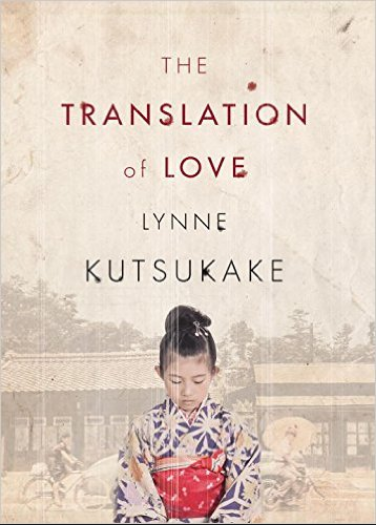
Lynne Kutsukake was born in Toronto to parents who, as Japanese-Canadians, were interned by the Canadian government during the Second World War. She earned a master’s degree in East Asian Studies and worked as a librarian at the University of Toronto before turning to fiction. In 2010, she was a finalist for the Journey Prize for her short story, “Mating”. The Translation of Love, her first novel, received starred reviews from Kirkus, Library Journal, and Booklist, and is a New York Times Book Review’s Editor’s Choice. Kutsukake’s prose is called “spare and elegant” by Helen Humphreys, and “beautifully wrought” by Lisa Gabriele. Chris Bohjalian praises the novel as “a rarity: a haunting mystery that is also a moving coming-of-age story”. The Translation of Love is an exemplar of historical fiction doing what it does best: opening up the past and making it feel present.
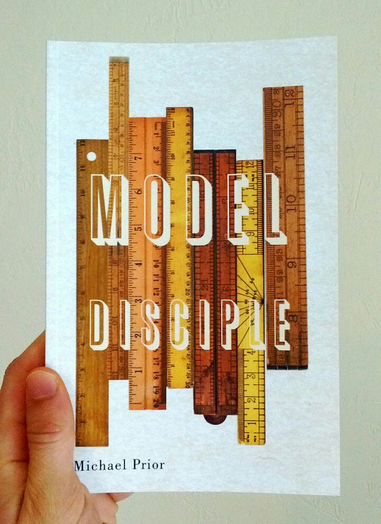 photo: Michael Prior
photo: Michael PriorMichael Prior began winning prizes for his poems pretty much as soon as he began publishing them. Between 2012 and 2015, he won poetry prizes from Vallum Magazine, Magma Poetry, Grain Magazine, The Walrus, and Matrix Magazine. He’s also been a finalist in many, many other contests hosted by publications, including The Malahat Review, The Fiddlehead, and the New Quarterly. He holds a Master’s degree in English literature from the University of Toronto and is presently an MFA candidate at Cornell University. Model Disciple is his first full-length poetry collection. Hannah Sanghee Park praises its “beautiful precision of detail, defamiliarizing language, resonant music, and deep intimacy”, all of which, Quill and Quire observes, “create a visceral effect”. With their uncommon blend of wit, candour, and ferocity, Prior’s poems invite you to see the world anew.
If you’re in the Kingston area, I hope you’re planning to come to WritersFest. See you there?
September 20, 2016
Pok pok
Hello, friends. A couple of days ago, my friend K sent me a link to these amazing images from The Illustrated Book of Poultry (1870) and they got me thinking. Have I ever told you about the time I killed a chicken?
 All images from Lewis Wright’s The Illustrated Book of Poultry (1870)
All images from Lewis Wright’s The Illustrated Book of Poultry (1870)A few years ago, Nick gave me a copy of Storey’s Guide to Raising Poultry, by Glenn Drowns, for Mother’s Day. To my mind, this is a waaaaaay better present than a charm bracelet or some such, and I spent many happy hours picturing our garden with a flock of chickens. (We live in town but are allowed to keep up to six backyard hens in our garden.) However, I kept stalling out at the prospect of having to put a chicken out of incurable, long-term misery – an inevitable part of chicken guardianship. And yet I thought the chickens sounded like fun. Maybe I just needed practice.

I am, by instinct, a squeamish person. I come by it honestly: my mother cannot abide insects, or even worms. My maternal grandmother kept chickens in her garden in Malaysia but when it came time to eat one, she had to take it to the market and swap it for a stranger. I was genuinely unsure whether I could kill a bird. Directly. Myself.
Eventually, I befriended A and J, a pair of organic farmers, and volunteered to help them “process” a batch of meat chickens. I arrived at their farm at 7 a.m. one Saturday morning. It was winter, and it was dark. As the sky lightened, I watched J coax the chickens into crates (about 25 birds, if memory serves), and then he and I drove to a neighbouring farm.
We pulled up in front of a large shed and unloaded our birds. Inside, the shed held a hot-water boiler, a plucker (picture a shallow, round centrifuge) and long stainless steel counters. Outside, there were three orange traffic cones mounted upside down on a window ledge. I remember thinking, What’s up with that? I soon found out.
J placed one chicken in each cone, head-down. They flapped briefly as they were being inverted but then became very still. The fatalism of chickens is astonishing. As quickly as possible, J severed their necks with a sharp knife. They bled out on the ground.

One of the things that I like and admire most about J’s approach is that he still finds it difficult to slaughter chickens. It’s not a small thing. It costs him reflection and emotion and he doesn’t make light of it. He was a great teacher. We dipped the birds briefly in boiling water (to loosen their feathers) and spun them in the plucker. He taught me how to gut them, where the crop was, and at which joint to sever the legs. The birds were beautiful and fluffy and alive when we began, and ugly and shrunken and dead when we finished.
J did all the killing, quietly and respectfully, without putting any pressure on me. But as we began the last batch, he turned to me. And I said I wanted to try. The last chicken’s neck was small and warm in my left hand. The knife was very sharp, but I still needed to cut twice. I cried. I watched it bleed out, then dipped, spun, and gutted it with care. I took it home and roasted it. And before we ate it, we thanked it for its life.

We still haven’t made the leap to backyard chickens. The kids, the dog, the gardens, and the house seem like plenty of responsibility for now. We might do it someday. But even if we don’t? That cold, grim, messy morning in the countryside has forever changed the way I cook and eat.
And even the way I look at magnificent, vainglorious, hilarious images like these.
September 13, 2016
An interview with Stephanie Burgis
Hello, there! Are you here because it’s Wednesday? If so, thank you for being extremely consistent! Here, have a dreamy library image:
 (I first saw this on Food52, which linked from Jodi Moskal on Pinterest.)
(I first saw this on Food52, which linked from Jodi Moskal on Pinterest.)On Thursday, September 15, I’ll be interviewing Stephanie Burgis over at the History Girls. We’ll talk opera, revolution, and castrati as romantic heroes – just some of the elements in her recent historical fantasy novel, Masks and Shadows. I hope you’ll join us!
August 31, 2016
The Book for People
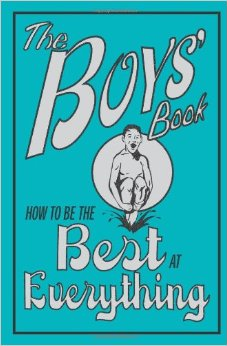
Hello, friends. In June, my son received this book as a gift (not from us!). I rolled my eyes (when he wasn’t looking) and thought, Oh, come on, Scholastic – you can do SO MUCH BETTER. I was tempted to incinerate it with my laser eyes but decided, instead, to wait and see what happened. For most of the summer, it sat on the shelf.
A couple of weeks ago, he began to read it. After a while, he asked, “Why do they say this book is for boys only?” We talked about some of the skills it tries to teach: how to rip a phone book in half, how to pop a wheelie, how to survive in space (?), and whether you need to be a boy to do those things. Then he shrugged and put it away.
Last week, I found it on the floor and said, “Hey, there’s that book again, the one that says it’s for boys.” And he replied, “Oh, that? I’m calling it the Book for People.”
Yes, my darlings, THIS IS HOW SMUG FEELS. Coincidentally, I’ve stopped curling my lip in disgust at the sight of the book.*
*Interestingly, the book was originally published as How to Be the Best at Everything. There’s a “girl” version, too, which while not entirely sedentary and looks-based does focus overmuch on things like “how to make your own lip gloss”, “how to act like a celebrity” and “how to look your best in photos”. Ugh ugh ugh ugh ugh.
August 30, 2016
Wisdom (not mine)
Hello, friends. This week, I want to share with you three of the best online articles I’ve recently read.
The first is “On White Fragility”, by André-Norton-award-winning novelist Justine Larbalestier. “I keep seeing white authors getting hung up on whether white people are allowed to write from points of view not our own. Spoiler: we’re allowed. No one is stopping us. Will doing so make YA more diverse? No, it won’t.” I have nothing to add, apart from the occasional fist-pump.
Second, my dear friend Sarah Sweet is not just a professional word nerd; she’s the Word Nerd. And she has some stern instructions for pedants run amok: “Nitpicking rather than engaging meaningfully with the substance of someone else’s statement is just plain rude, and people will think you’re rude, and they will be right.” So do us all a favour and don’t be a grammar troll. If you want to hear Sarah read it (at a pace that sounds normal enough to strangers but is in fact reality-bendingly slow to her friends), here’s a link to the podcast.
And finally, this came to my attention via the delightful Jamie Tan. I spent SO MANY YEARS politely answering inappropriate questions because I thought I owed others my best manners, even when others were deeply rude and creepy to me. I figured it out, eventually. But I wish I’d read this when I was twelve.
So… that was pretty didactic. In the spirit of fairness, do you have any suggested reading or life lessons for me this week?



